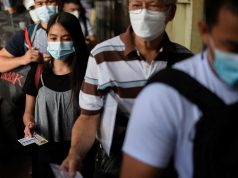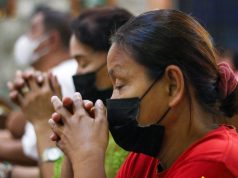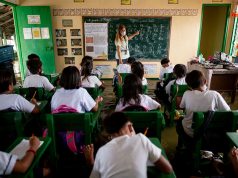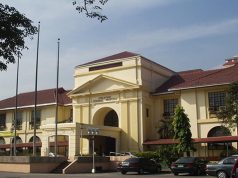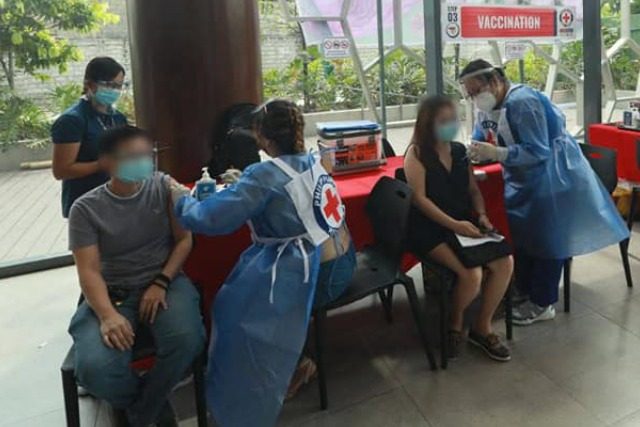
Concerns on the still low rates in COVID-19 testing and vaccination in the country were raised online following the Philippines’ low ranking in Bloomberg’s pandemic resiliency report.
The Philippines placed last out of 53 countries for the second straight month in a study based on virus containment and reopening of the economy.
Bloomberg’s COVID Resiliency Ranking is a monthly report that assesses 53 countries affected by the pandemic based on 12 data points that included the country’s reopening progress, vaccination rate and COVID-19 status.
The country also placed at the 53rd spot in September when daily COVID-19 infections in the country hit record highs.
This time, Vietnam stood next to the Philippines at the 52nd place. Other Southeast Asian neighbors also ranked low on the list.
The nations with the lowest Bloomberg Resilience scores are:
- Romania – 49.5
- Malaysia – 48.9
- Thailand – 46.8
- Vietnam – 44
- Philippines – 40.5
In the article, Bloomberg cited the Philippines’ vaccination coverage as among the factors that contributed to its low ranking.
“While other Southeast Asian nations also continue to be ranked low among the 53 economies tracked, the Philippines fares among the worst on vaccine coverage, with just 26% of the population covered amid challenges in bringing shots to areas outside of the big cities,” the article said.
It also noted that while the government allowed a gradual reopening of businesses, the Philippines is still behind Thailand and Indonesia.
“The capital Manila has allowed more businesses to open their doors again, including gyms and cinemas, but it’s still behind neighbors like Thailand and Indonesia which are back to embracing tourists,” Bloomberg said.
Still slow vaccine rollout, low testing rates
Some Filipinos also criticized the government over the sluggish rollout of COVID-19 jabs to regions outside of Metro Manila, pricey COVID-19 testing, contact tracing and other pandemic response efforts.
“More testing na matagal ng sinasabi na LIBRE dapat, ibaba pa ang positivity rate to less than 5 percent, efficient contact tracings, mabilis na vaccine rollout, expand pa ang healthcare facilities tiyak aangat tayo sa ranking at babalik tayo sa old normal!” one Twitter user said.
“Tayo nga lang bansa na pinakamahabang lockdown at nag-iisang naka face shield still mataas ang kaso,” another only user wrote.
Data analyst Edson Guido also shared the same view that the country needed to ramp up its vaccination efforts.
Guido shared a list of Bloomberg’s scores of Southeast Asian countries, including the Philippines, in terms of vaccine coverage.
The Philippines only has 26% of its population inoculated.
He also shared a screenshot of Bloomberg’s monthly ranking where the country is placed.
LOOK: The Philippines is ranked last for the 2nd straight month in the latest Bloomberg Covid Resilience Ranking pic.twitter.com/kavJkEIJS7
— Edson C. Guido (@EdsonCGuido) October 27, 2021
The World Health Organization-Philippines previously revealed that 3.4 million senior citizens in the country, who are supposed to be in the priority groups, have not yet received their COVID-19 jabs.
READ: 3.4 million Filipino senior citizens not yet vaccinated, says WHO-Philippines
Similar to Bloomberg’s scoring, Reuters COVID-19 tracker also showed that the country has so far inoculated only 26.3% of its population.
Cheers for decreasing cases
Despite the low ranking, Bloomberg recognized the country’s decreasing COVID-19 cases.
It noted that this is a step toward better handling of the pandemic, and eventually, more reopening in the future.
“The percentage of those testing positive for the virus has declined significantly from nearly one in three in September to about 12%, indicating the Philippines has a better handle on its outbreak than before and is catching cases. That could pave the way for more reopening going forward,” the article said.
An official of the Department of Interior and Local Government, however, slammed these findings, citing them as unfair and biased toward Western countries.
“We just started our universal healthcare. Di talaga tayo tataas d’yan, we’re a developing country…and the quality of life is also considered. In my opinion, it’s really a biased survey towards Western countries,” DILG Undersecretary Jonathan Malaya said in an interview with ANC’s Headstart.




